What it’s like to race around the Nürburgring

"The Green Hell is paradise on earth," according to Zarko Zaharov.
A historic gray ribbon of tarmac through a thick forest near the town of Nürburg, Germany. It consists of 20.7 kilometers and 72 turns.
Built in 1932, it certainly does not have to conform to any of today’s safety rules of mandated minimal run-off area and gravel traps. The track, which is not much wider than your average B-road that you take to work in the morning, is lined with about a couple of meters of grass on each side and what looks to be a painful barrier. If you touch the grass you’ll lose traction and it’s a one-way ticket to the wall.

(Photo: Zarko Zaharov)
It’s also full of blind corners, crests, bumpy, uneven asphalt and a couple of jumps. In fact, one part of the track, where you can catch some serious air, is very appropriately called “Flugpladz”- German for airfield. This happened to me, and I must admit I prefer flying Lufthansa. This was not a pleasant experience and the service onboard was not great.
Which is probably why the Nürburgring Nordschleife is deemed by many to be the most dangerous racetrack in the world. Too dangerous for Formula 1, who stopped racing here after the 1976 incident where the infamous and sadly recently passed Niki Lauda had his major accident. The three-time world champion and kilt-wearing Jackie Stewart gave it the name “The Green Hell”, a name that has stuck to this day.
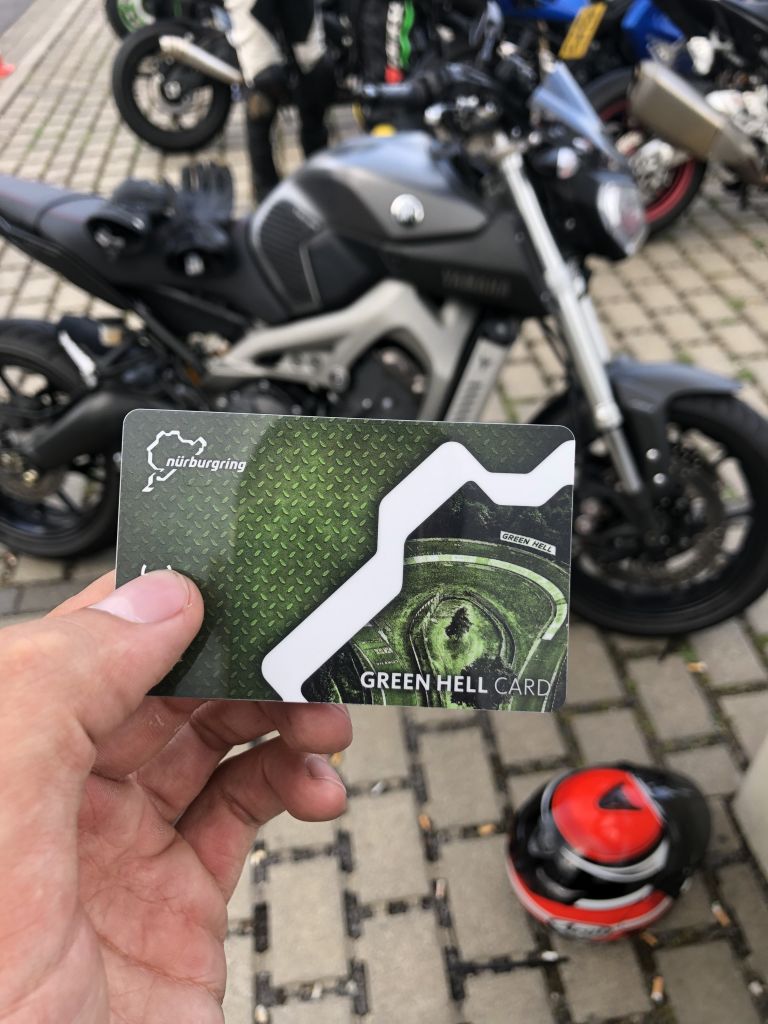
(Photo: Zarko Zaharov)
Green, not because what goes on here is particularly Greenpeace approved, but because of the thick green forest that surrounds it. Hell, because… Well, you get the memo by now.
In order to be fast here, you must know every single meter of this track in your sleep. To be fast, it would also help if you are borderline insane.
However, there is a myth about this circuit that attracts silly boys like me to this day, some 87 years after it was built. If you have any petrol running through your veins, this place is your Sistine Chapel. Your Everest. Your Voldemort. Whatever analogy works. It’s also a drug like no other. When you complete a lap, and you are rolling into the pit area, you’ll find yourself yelling at the top of your lungs inside your helmet in utter ecstasy. I did anyway. And I think the two guys in the yellow BMW M3 GTS I passed as I was doing just that and petting the top of my bike yelling “Good girl!”, probably understood the feeling I was experiencing. They confirmed this with a thumbs up and a head nod.
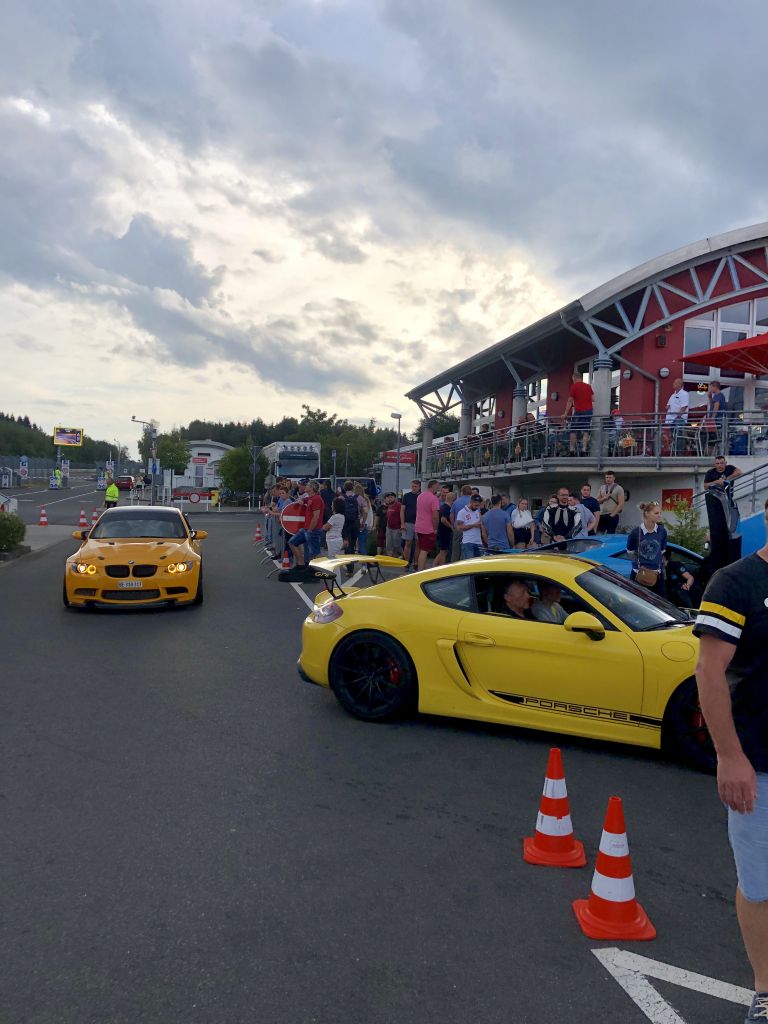
(Photo: Zarko Zaharov)
I experienced the feeling this summer when I finally fulfilled by boyhood dream of going there and completing a lap. Preferably alive. Preferably at a safe and slow pace. I succeed at the first, failed at the last.
So, what is it like driving there? I’ll give you a firsthand view.
First you line up for your ticket. The Nürburgring Nordschleife is open to the public as it is classified as a “toll road”. You pay 25 euros per lap. Get your ticket and line up to get on the track. You scan your ticket and you get the green light.
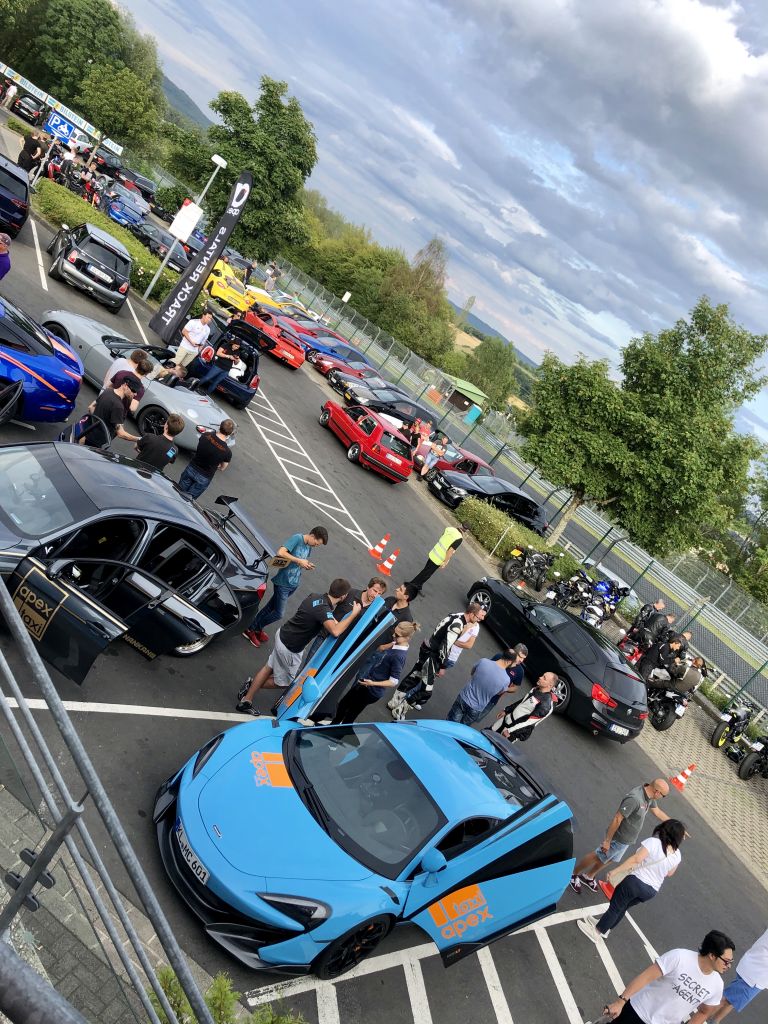
(Photo: Zarko Zaharov)
The three cars in front of me, are slow away. I want to get them out of the way as quickly as possible. I’m grabbing gears, 1st, 2nd, 3rd, 4th… About 10 seconds later I’m seeing 200 km/h and the first set of corners quickly approaching. I chicken out and start braking. Too early as it manifests.
The driver in an old 320i showing rust on the rear fender, who I just passed on pure speed, passes me while I’m braking, putting his car so close to me that I swear I could see the man desperately needs a manicure, and makes a novice of me.
“Okay, this is for real now”, I think to myself. I need to step up my game or otherwise I’ll be hazardously slow. Because that is a thing, on racetracks. It’s not the speed per se that is particularly dangerous to you or others, but it’s “not fitting in”. Being unpredictable is the worst thing you can be on a track. This is another element of danger, as if there were not enough already in this place.
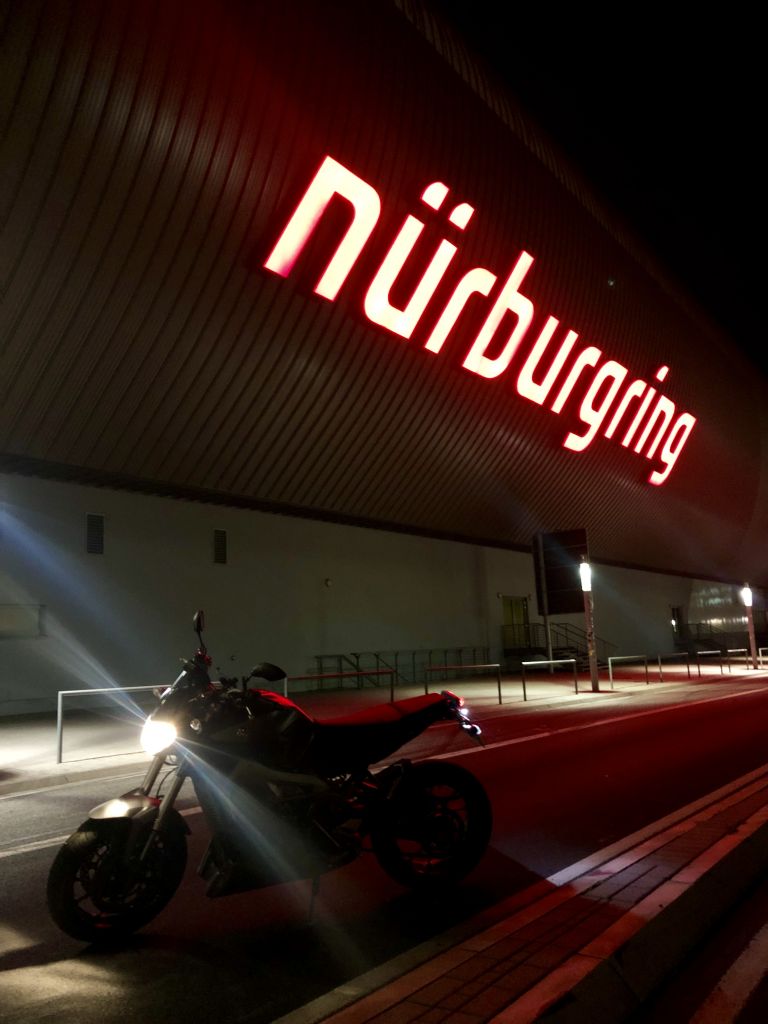
(Photo: Zarko Zaharov)
Since it’s open to everyone, you have very different levels of skill and speed. Some guys buy the season pass here, and basically live on the track. For others, like me… it’s their first time.
You also have anything from proper racecars running slicks and wings, to crummy old eco-boxes from before I was born. So, the speed difference is insane, and your brain is on overdrive trying to calculate it.
There’s a rule on the Nordschleife, just like public roads – you can only pass on the left. So, when you catch up to somebody slower, you must make sure they’ve seen you, and preferably indicate right and stay on their right side. But you also need to account for the GT3 that’s basically a racecar for the street, flying towards you in your rear mirror.
*Do I overtake the slow one in front and then get out off way, or get out off way now and overtake later? What does the guy in front of me expect me to do? Has he seen me? How fast do I think he’s going? What speed I am doing? Oh s*** 170. That means the Porsche behind is doing north of 230, judging by his closing speed. Will he even have the time and space to slow down? *
All of this is a split-second thought process that goes on pretty much every two out of the 72 corners. You’re also thinking all this while leaned over at max, looking predominantly at your mirror rather than in front, and doing 170-180 km/h, in some places even more, with 20-30 cm to the edge of the track and the green stuff, which I really do not want to find myself on.
You certainly do feel alive, this close to catastrophe.
Unlike a different kind of “first time” in my life, this was not something I was going to finish before it even started. But regardless of not setting any lap records that day (far from it), it was still done before I could really fathom it. I guess there is something about that theory of relativity and time.
Less than 10 minutes later after I had set off on my maiden voyage, I had completed the 20.7 km lap and with it, completed my boyhood dream.
This place gets under your skin though, and I am already planning my trip back next year…
Until next time, Green Hell.
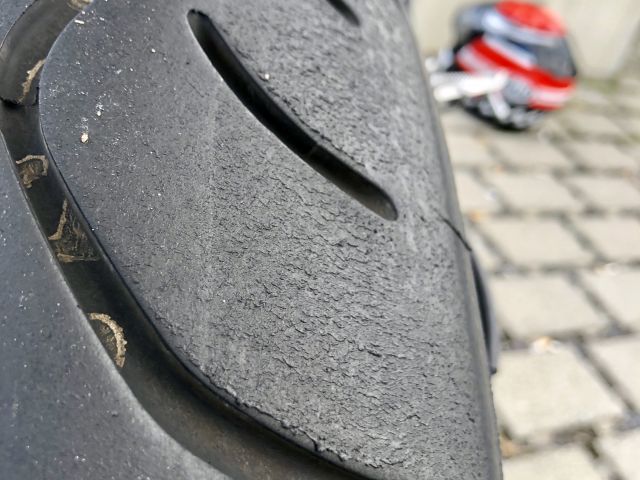
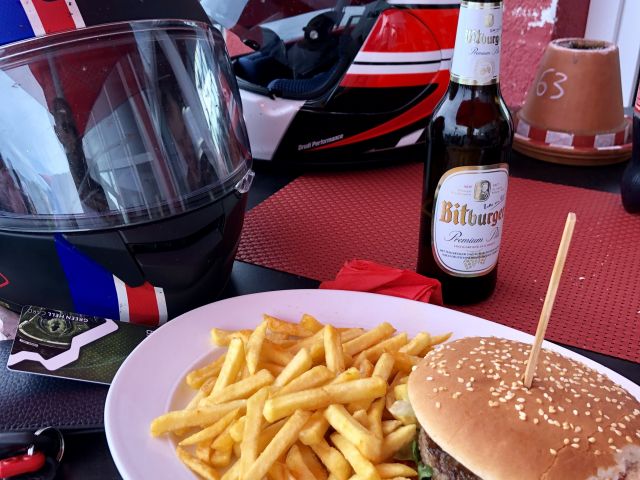



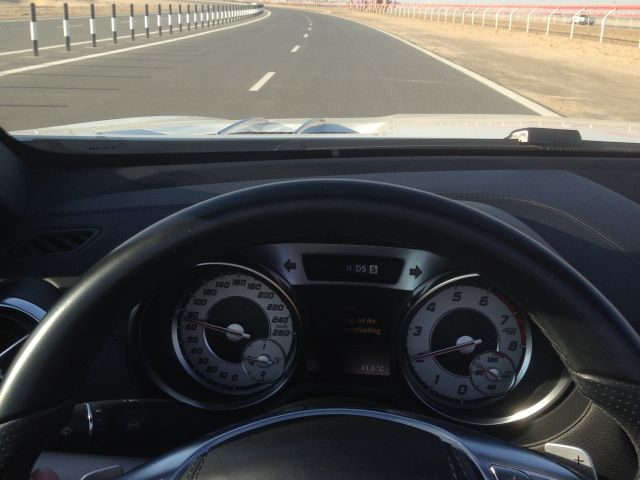

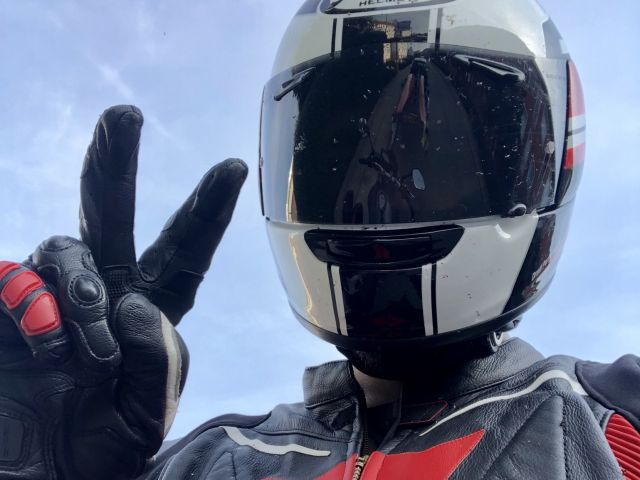
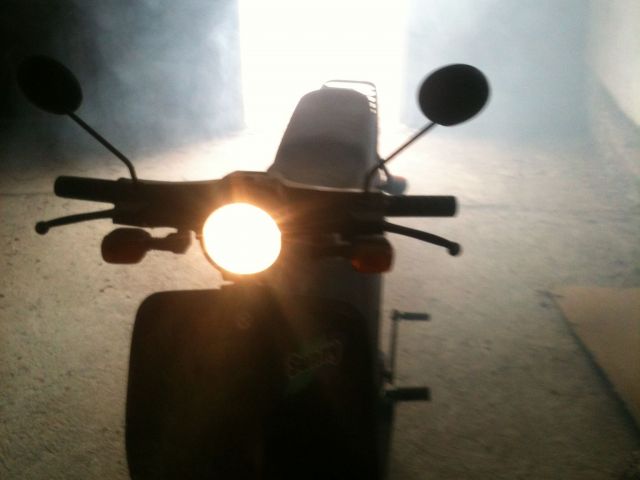
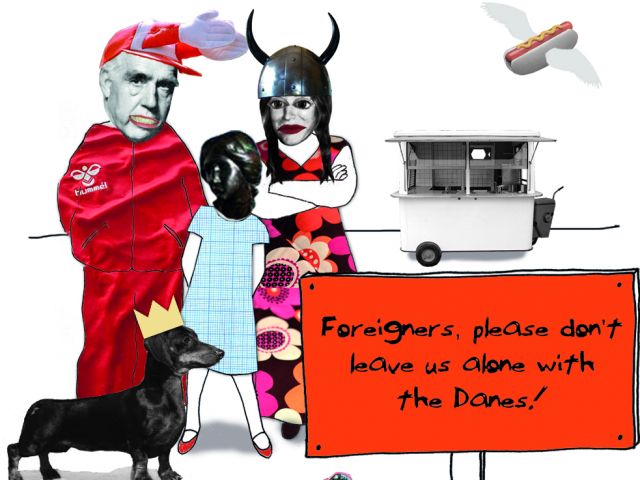





























































































































Comments